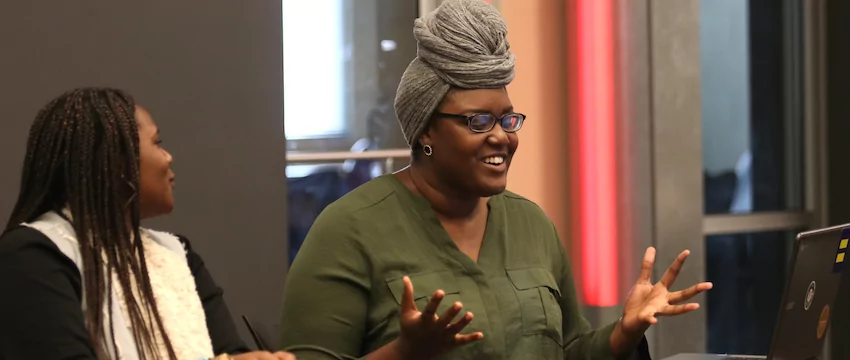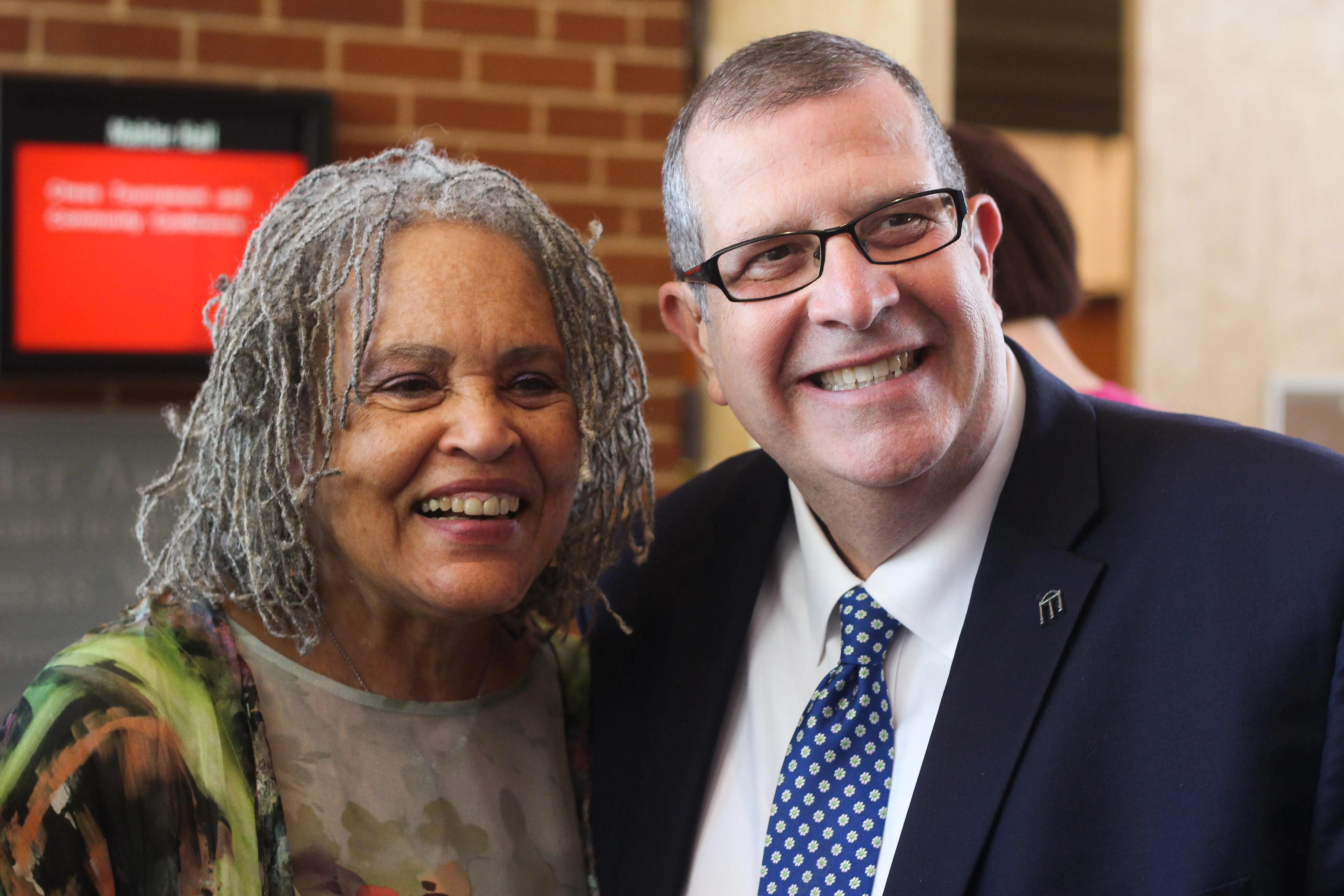Giving Voice to the Voiceless names 2023 grant recipients

Giving Voice to the Voiceless names 2023 grant recipients

Giving Voice to the Voiceless, a program awarding grants to University of Georgia students for projects amplifying marginalized voices, has named its 2023 recipients. The program was created and is supported by journalist Charlayne Hunter-Gault (ABJ ’63) and her husband, Ron Gault, with contributions from others.
This year’s five grant recipients include those pursuing projects to shed light on the stories and bolster the voices of women living in abusive relationships, promote equity and inclusion in science, protect the land and water of indigenous Peruvians, restore and preserve historic African American burial sites, and to help with the community reentry of formerly incarcerated Black women.
“What has become so clear to me is that UGA is a microcosm of society and UGA can do some creative things that can help the entire country,” Hunter-Gault said. “What I noticed going through the applications is that the voices are people of color. They are Black people. They are Latin people. They are gay people. They are people of every representation of our humanity.”
Moni Basu, the Charlayne Hunter-Gault Distinguished Writer in Residence at Grady College, administers the Giving Voice to the Voiceless program.
“We were amazed by the high caliber of proposals this year, which made it hard to choose,” Basu said. “I am excited to see University of Georgia students use these funds to make a difference in the community and lift up voices that would perhaps otherwise not be heard. And that, I believe, is the only way we can create a greater understanding of one another and foster a more empathetic society.”
This year’s Giving Voice to the Voiceless grant recipients include the following:
- Harika Bommana, Master’s of Fine Arts in Film, Television and Digital Media
Project: “Cardamom,” a short film.
Funds will go towards supporting “Cardamom,” a short film about a South Asian immigrant living in an abusive marriage. The film seeks to shed light on the decisions women living in abusive relationships must make to survive, showing the not-so-violent, and often public, side of abusive relationships and how the conflicting behaviors can further hinder survivors from getting help.
- Christina Crespo, Ph.D. Candidate, Institute for Women’s Studies
Project: “Science Otherwise: Creating Space for Difference”
Funds will go to support a dissertation research project conducted through the Civic Laboratory for Environmental Action Research (CLEAR), an indigenous-led, interdisciplinary, feminist and anticolonial marine science laboratory, that aims to change science into a more equitable and just space.
- Katie Foster, Ph.D. Candidate, Anthropology & Integrative Conservation
Project: “Co-Designing a StoryMap of Indigenous Rights, Resistance, and Resource Conflict in Peru”
Funds will go towards creating a web platform to help indigenous Peruvians understand and fight for their internationally-recognized rights to their lands and waters in the face of growing pressures from extractive industries.
- Lynn Jones, Master’s of Historic Preservation, College of Environment and Design
Project: “Friends of Zion Hill Cemetery Project, Monroe, Georgia / Zion Hill Cemetery: Historic Signage”
Funds will go towards recognizing, restoring and preserving historic African American burial sites, using the Zion Hill Cemetery restoration as a template. Since 2018, there have been ongoing efforts to research, restore and preserve the Zion Hill Cemetery in Monroe, Georgia, which had fallen into a deep state of abandonment.
- Oluwayomi Paseda, Ph.D. Candidate, School of Social Work
Project: “Black Women’s Experiences with Community Reentry Following Incarceration”
Funds will go towards supporting research to help inform implications for reentry policy and practice tailored to Black women transitioning from imprisonment to community and help improve the narrative placed on this population.
More information can be found on the Giving Voice to the Voiceless webpage.
Giving Voice to the Voiceless grants rely on support from contributors. With a gift to the Giving Voice to the Voiceless Fund, you can help students engage in meaningful work in the world while they are students, sharing the voices they discover with others through experiential learning, a top academic priority of the University and the College. Give here.